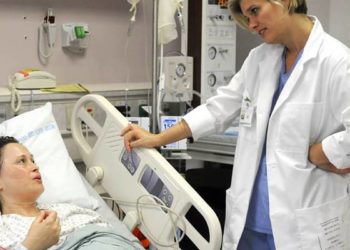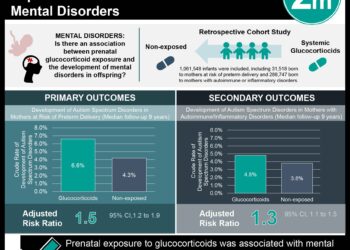AAP policy statement provides recommendations for newborn care during planned home births
1. The American Academy of Pediatrics (AAP) does not recommend home birth, but recognizes that women may choose to plan a home birth. In these instances, there must be at least 1 care provider whose primary responsibility is the newborn and is fully trained in neonatal resuscitation.
2. The statement provides guidelines regarding immediate assessment and resuscitation of the newborn, as well as completing routine newborn care at home. Additionally, it advises when it may be appropriate to transfer the infant to a medical facility.
Statement Rundown: Planned home birth in the United States is associated with an increased risk of perinatal death, low Apgar scores, and neonatal seizures. Nonetheless, the incidence of planned home births has increased over the past decade. The official position of the AAP is that planned home births are not recommended. This policy statement provides newborn care recommendations for those women who choose to have planned home births, stating that every newborn infant deserves appropriate medical care regardless of birth location. The statement is divided into two parts: (1) assessment, resuscitation, and care of the newborn infant immediately after birth, and (2) routine care of the newborn infant. Key points include:
- Pediatric providers should be prepared to counsel expectant mothers regarding the risks of planned home births and assess whether she is an appropriate candidate for home birth.
- Potential candidates for home birth must include all of the following: absence of significant maternal disease, gestation of 37.0 to 41.6 weeks, singleton fetus estimated to be appropriate for gestational age, cephalic presentation, and labor that is spontaneous or induced as an outpatient.
- There should be 2 care providers at birth, with at least 1 whose primary responsibility is to care for the newborn infant. This provider must have the training, skills, and equipment necessary to perform neonatal resuscitation in accordance with the Neonatal Resuscitation Program (NRP).
- Temperature, heart rate, skin color, peripheral circulation, respiration, level of consciousness, tone, and activity must be monitored at least once every 30 minutes until the infant is stable for 2 hours.
- Any infant with respiratory distress, continued cyanosis, or other signs of illness, should be transferred to a medical facility immediately. Additionally, any infant who required positive pressure ventilation for more than 30 to 60 seconds should be transferred to a medical facility for close monitoring.
- A detailed physical examination should be performed after birth. If the infant is discovered to be small or large for gestational age, he or she should be screened for hypoglycemia. If hypoglycemia (glucose <45 mg/dL) persists after feeding, the infant should be promptly transferred to a medical facility.
- The statement also makes recommendations regarding monitoring for early-onset sepsis, eye prophylaxis, vitamin K and hepatitis B administration, feeding assessment, hyperbilirubinemia screening, universal newborn, hearing, and pulse oximetry screening, and provision of follow up care.
Click to read the policy statement, published today in Pediatrics
Relevant Reading: American College of Obstetricians and Gynecologists (ACOG) Committee Opinion – Planned Home Birth
Image: PD
©2020 2 Minute Medicine, Inc. All rights reserved. No works may be reproduced without expressed written consent from 2 Minute Medicine, Inc. Inquire about licensing here. No article should be construed as medical advice and is not intended as such by the authors or by 2 Minute Medicine, Inc.







